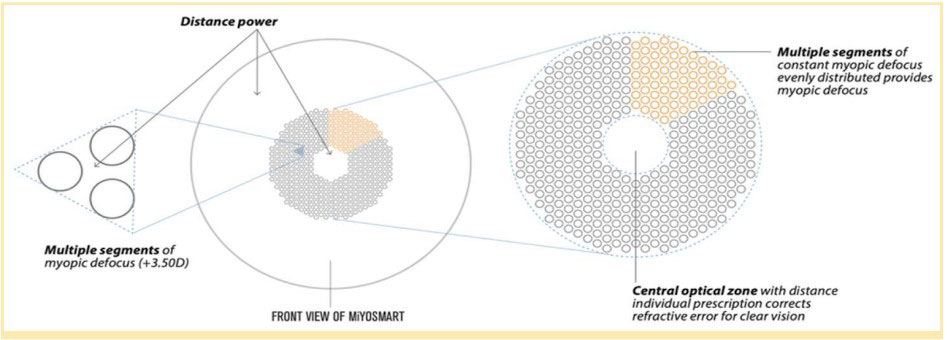 Myopia, also known as nearsightedness, is a common eye condition in which distant objects appear blurry while close-up objects are clearly seen. It occurs when the eyeball is too long, or the cornea or lens is too curved, causing light to focus in front of the retina instead of on it.
Myopia, also known as nearsightedness, is a common eye condition in which distant objects appear blurry while close-up objects are clearly seen. It occurs when the eyeball is too long, or the cornea or lens is too curved, causing light to focus in front of the retina instead of on it.
Myopia has become a global epidemic in recent years, with an estimated 4.7 billion people projected to have the condition by 2050. While glasses and contact lenses can correct vision, they do not address the underlying problem of Myopia progression. This has led to a growing interest in developing new approaches to Myopia control.
New Approaches to Myopia Control
Atropine Eye Drops
Atropine eye drops are a relatively new treatment option for Myopia control. It is a prescription medication used to treat the symptoms of low heart rate (bradycardia), to lessen salivation before surgery, or as an antidote for mushroom poisoning.
In relation to the eye, Atropine is used to dilate the pupil and temporarily relax the eye's focusing mechanism. By easing the strain on the eye's focusing apparatus, it's thought to slow the progression of Myopia.
The effect of Atropine on Myopia control has been studied extensively over the years. It has shown that Atropine eye drops can be beneficial for slowing down Myopia progression. One study found that children who received Atropine eye drops had a 60% reduction in Myopia progression compared to those who did not receive the drops. Another study was done combining Atropine with MiSight 1-day contact lenses. It was discovered that the combination of peripheral blur contact lenses with low-dose Atropine effectively slowed the progression of Myopia. Combination therapy did not, however, offer any benefits over monotherapy.
Atropine eye drops can, unfortunately, cause side effects such as sensitivity to light, blurred vision, and eye pain. Further investigation is still needed to lessen these side effects.
MiYOSMART Glasses
MiYOSMART glasses are a new type of eyewear specifically developed to help control Myopia, or nearsightedness, in kids.
MiYOSMART glasses use a unique technology called D.I.M.S. (Defocus Incorporated Multiple Segments). It involves incorporating multiple segments with varying refractive powers into the lenses of the glasses. These segments create a myopic defocus, or blur, in the peripheral areas of the wearer's field of vision.

The results of a two-year clinical investigation revealed that wearing MiYOSMART spectacle lenses daily decreased the progression of Myopia by an average of 60% when compared to using conventional single-vision lenses.
The MiYOSMART glasses also feature a stylish and comfortable design that is suitable for children. The glasses are made from lightweight, flexible materials that are durable and can withstand the wear and tear of daily use.
MiYOSMART glasses are not a cure for Myopia, but they can be a valuable tool in helping to control its progression. They are most effective when worn regularly.
There are several treatment options available for Myopia, including corrective eyewear such as glasses and contact lenses, refractive surgery, and specialized contact lenses such as orthokeratology lenses and scleral lenses.
Newer options such as Atropine eye drops and MiYOSMART glasses are being studied in the continued search for a more effective treatment option. Consult with an eye care professional to discuss the latest treatment options. One thing’s clear, early intervention is the key to success.
Myopia Control in Hasbrouck Heights
Need help managing your Myopia? Contact the team at Heights Eye Care Myopia Management Center in Hasbrouck Heights for a comprehensive eye exam and to find the right treatment plan for you.

